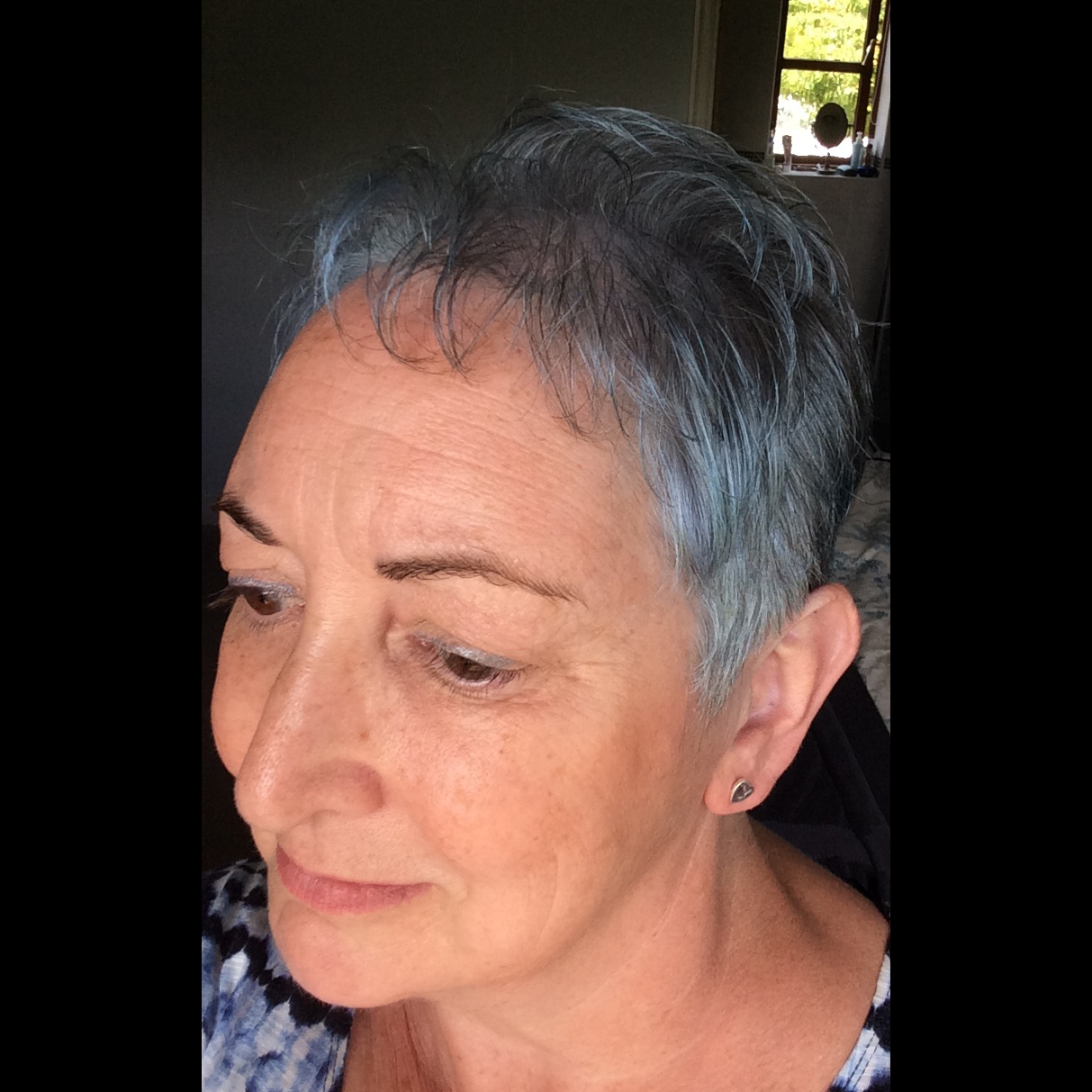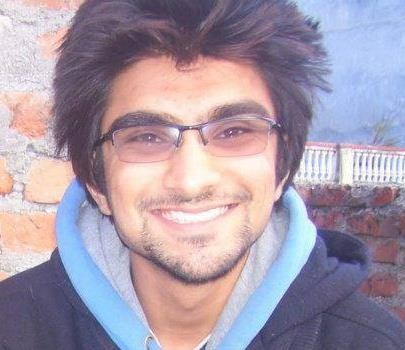Jae joins as the latest Me.Decoded contributor. I enjoyed reading her story. In particular, I really resonated her response that "I no longer feel broken. I'm differently wired and that's OK"
It was a reminder that there is so much to be gained by embracing the person that you are.
Tell me a bit about yourself ?
I'm fifty five years old, formally diagnosed ASD1 this year after self-identifying nearly four years ago.
This question is hard to manage because I have to decide where to start and how much detail to go into... on the right day (or wrong, depending upon your perspective) I can happily pin you to the wall with a splurge of information.
Let's go with right here and now and the things I do rather than some existential essay.
I'm married, have three adult sons, a seventeen year old cat who has reverted to kitten-hood, and a one year old monster of a Houdini-dog who challenges our assumption of his skills daily. I teach yoga, I provide one to one therapy and occasional workshop delivery, I dabble in crafts, I write, and I'm an information-gatherer. I live on the side of a beautiful hill, in a series of lovely valleys, in the North West of England. It's a semi-rural, semi-industrial area. The industry following the valley bottoms where the water flows and the hills and fields overlooking.
What was life like before you were diagnosed?
Anxious, stressful, many dips into depression, a bit of a mystery. I spent a lot of time wondering if or how I'd got something wrong. I used to come away from social events knowing I'd done 'IT' again but not ever knowing what 'IT' was. Something made people turn away or their eyes glaze over and I couldn't fathom what I'd done or said.
I spent lots of time and energy, from late teens onward, trying to fix whatever it was that was broken inside me. Some of it was learning coping mechanisms - that's where the yoga started - some of it was aimed at fixing something deeper, for example, studying psychology at degree level and psychotherapy training later in life.
I had a number of what I now recognise as burnouts and I still feel as if I'm in recovery from the last big one nearly twenty years ago, when I gave up full-time, employed work and became self-employed.
The anxiety and the constant masking led to exhaustion and depression. Mostly it was low-grade, occasionally it was acute. I call it my perspex layer (or plexiglas in the US). It keeps the anxiety and 'bad' feelings down and under control, but of course it squashes the good stuff, too. I often felt like a fraud, waiting to be caught out, but I didn't know why. I wasn't consciously being inauthentic. My chameleon skills were a learned survival strategy.
When were you diagnosed?
This past Spring, 2018.
What was the diagnosis process like for you?
It wasn't too bad because I'd already self-identified, had gathered all the evidence for myself already, and was pretty certain that I was autistic, probably ASD1/Aspergers. I'm also lucky to live in an area where access to the diagnosis process can be by self-referral. I didn't have to go through other gate-keepers for pre-assessment screening. (I have a friend whose GP blocked her access based on outdated information on autism and, to be honest, mysogynistic views on women's health and well-being.) Plus, of course, in the UK, the cost of the process is covered by our health system, so long as you can get past the gate-keepers and there's expertise in your area. It's not consistent across the country.
I'd already completed a number of questionnaires online, done lots of research on autism in women, and had started to gather my thoughts on my own experiences. I checked with the assessing organisation that they were up to date on how autistic women present. No way was I going to subject myself to a process that was out-dated. That first meeting identified that an autism assessment was an appropriate route for me. I was also semi-fast-tracked because of my depression and previous suicidal ideations.
The actual assessment involved two separate meetings. The first one was an unstructured discussion, mostly because I went with pages of preparation (in case when I got there it was one of my mute times) and did my pin-them-to-the-wall routine. The second meeting was to go through the structured interview format (It had a name don't ask me which one it was. I didn't take that information in) to pull all that information together and make sure there were no gaps. The clinical psychologist told me at the end of the first meeting that she was pretty sure I was autistic.
I enjoyed the process. It required the use of the skills that energise me; data gathering, pattern recognition, ideas assimilation.
I was surprised at my reaction to that piece of paper with the diagnosis in black and white. It was like a trauma response, like going into shock after an accident. I was shaking and feeling an adrenalin reaction. I really didn't expect that because I already knew.
The only reason I went for a diagnosis was after reading some discussions on an autism forum about elder care. It made me think about what if I have to go into hospital, or an old people's home? I'd already said to my sons, to be sure, if that happened, that I was somewhere I could have my own room and not be made to sit in a communal sitting room with TVs blaring and all that noise. I thought the diagnosis would make my request more likely to happen. I'm not so sure now and worry a little about discrimination.
Did getting a diagnosis change anything for you?
Yes. It changed everything. There's so much that I assumed that I can now see just isn't 'true'. The key bit is around communication. This new understanding is changing so many of my relationships because I/we now understand where the mis-communications are happening and this opens up whole new possibilities.
It means relationships are a little more fractious at times because I'm reducing my masking behaviours but the end result is better relationships because of improved understanding; my husband, my kids, my close friends.
I'm also being much kinder to myself and I'm cutting out those activities that I kept on trying to do but at a huge anxiety cost and subsequent need for overload recovery days. I can feel the difference in my body, no more stripping away of my resources that I can feel as a physical thing. In fact I've become more sensitive now to even the smallest of anxiety warning signs, letting me drop into my calming breathing and reminding myself to just stay in the present moment and not worry about the past or future.
I no longer feel broken. I'm differently wired and that's OK.
What is life like for you now ?
It's currently pretty good. I'm exploring just what I want to do with this differently wired brain of mine. I want to contribute. I want to make a difference and in my way. In a way that energises rather than depletes.
I know there will also be the anxious and depressed times and that I'm increasing my ability to deal with them. When I'm down in the dip, I remind myself that I've been here before and given a little time and self-care, I've always come up and out of the dip so far.
Some of my self-doubt has increased, because I'm less certain now that I've understood what people actually mean, where I used to be certain. Now, I just ask if I'm not sure.
What one thing do you want people to know about autism?
That what you see on the outside is not necessarily what you think is going on on the inside.
Sometimes we just need a bit more time to process what's going on around us and come to our answer. Give us that time. Sometimes our way of communicating is different (it can be very different for some autistic people). Be open to that.
What you maybe see as lack of emotion can be the opposite. It can be overload of emotion and overwhelm at what to do with that emotion. Don't assume we don't care.
Why is Neurodiversity important to you?
My eyes have been opened to all kinds of diversity, not just neurodiversity.
Every human being has something to offer. I believe that most of us want to contribute in some way. To do that we need the artificial barriers lifting. Many neurodiverse people see things differently and can play a valuable part in removing the barriers. The most important part? Nothing about us without us.
Any final thoughts?
I think I've probably gone over my words quota already. Surprise!
If you have a story or insights linked to Neurodiversity which you would like to share, then please get in touch.


